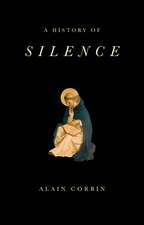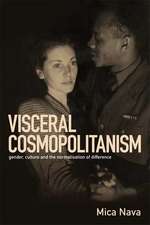Perceptions of Society in Communist Europe: Regime Archives and Popular Opinion
Editat de Dr. Muriel Blaiveen Limba Engleză Hardback – 17 oct 2018
| Toate formatele și edițiile | Preț | Express |
|---|---|---|
| Paperback (1) | 224.76 lei 6-8 săpt. | |
| Bloomsbury Publishing – 29 apr 2020 | 224.76 lei 6-8 săpt. | |
| Hardback (1) | 715.66 lei 6-8 săpt. | |
| Bloomsbury Publishing – 17 oct 2018 | 715.66 lei 6-8 săpt. |
Preț: 715.66 lei
Preț vechi: 1028.33 lei
-30% Nou
136.94€ • 142.98$ • 113.34£
Carte tipărită la comandă
Livrare economică 04-18 aprilie
Specificații
ISBN-10: 1350051713
Pagini: 264
Dimensiuni: 156 x 234 mm
Greutate: 0.54 kg
Editura: Bloomsbury Publishing
Colecția Bloomsbury Academic
Locul publicării:London, United Kingdom
Caracteristici
Notă biografică
Cuprins
Descriere
Drawing on archival sources from Czechoslovakia, Poland, East Germany, Romania and Bulgaria, Perceptions of Society in Communist Europe considers whether and to what extent communist regimes cared about popular opinion, how they obtained their information, and how it helped them implement and maintain their rule. Contrary to popular belief, communist regimes sought to legitimise their domination with minimal resort to violence in order to maintain their everyday power. This entailed a permanent negotiation process between the rulers and the ruled, with public approval of governmental policies becoming key to their success. By analysing topics such as a Stalinist musical in Czechoslovakia, workers' letters to the leadership in Romania, children's television in Poland and the figure of the secret agent in contemporary culture, as well as many more besides, Muriel Blaive and the contributors demonstrate the potential of social history to deconstruct parochial national perceptions of communism.This cutting-edge volume is a vital resource for academics, postgraduates and advanced undergraduates studying East-Central European history, Stalinism and comparative communism.
























